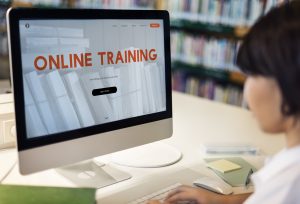Applying to IT jobs can be difficult, especially if it feels like you’re submitting a lot of applications and not gaining much traction. When you’re feeling this way, how do you know where to focus your efforts? There’s not one answer, as every position and team is looking for something a little bit different, but there are a few guidelines that can help. With extensive experience in the IT field, we’ve compiled our top 3 tips for those trying to get a job in IT:
Training
As with any skilled profession, it’s foundational that you know how to do the tasks required for a job in IT. While a college degree is a common starting point to obtain proper training, it is not the only path. Certifications and relevant work experience are equally valuable:
- College Degree: A bachelor’s degree in Computer Science, Information Science, Software Engineering, or related fields is the most straightforward path to an IT career. It offers a well-rounded education and typically takes around four years to complete.
- Certifications: Certifications can be paired with a college degree or achieved on their own, and field experts often consider them more useful or important than a college degree. The most common certification for IT professionals is the CompTIA A+. That certification paired with good communication skills is a great starting point for a career in IT. If you have A+ and are still struggling to get jobs, consider adding Network+, Security+, or other more advanced certifications to round out your training. There are a variety of in-person and online courses to prepare students for these certification exams. (How Long Does it Take to Complete an IT Course?)
- Work Experience: While it may be difficult to get IT-related jobs without education or a certification, it’s not impossible. Starting with entry-level roles provides practical experience and opportunities to develop skills, even without formal education or certifications. It may be a good idea to work on getting certified while working in a relevant entry-level position.
Professionalism
Professionalism extends beyond technical skills and encompasses how you present yourself on paper and in person. For resumes, prioritize clarity and professionalism over flashy designs. Structure your resume with the most crucial information at the top and use action words to highlight achievements. When preparing for interviews, focus on problem-solving examples and effective communication skills.
Polishing your professionalism:
- Resume: Opt for a clean, organized format with a basic font and proper spacing. Utilize action words to showcase accomplishments and run your final draft through tools like ChatGPT for additional refinements. University of Colorado Boulder has a great resource page to find action words for your resume.
- Interview Skills: When interviewing, the interviewer is looking for someone who can problem-solve and communicate well with others. To prepare for an interview, come up with a few specific examples of times that you ran into a problem in the workplace and came up with a solution to get past it. Then ask a mentor or friend to practice and interview with you so you can get comfortable answering questions on the spot. Interviewers are also looking for people with good communication and customer service skills. When practicing interviewing, work on being upbeat, cheerful, and helpful when responding to questions to showcase these skills.
Bedrock Skills (AKA soft skills)
You’ve probably heard of soft skills, but we like how psychologist Erin Shrimpton defines them as Bedrock Skills: “[These skills] form a bedrock–there to stay, acting as a foundation for our overall capability and underpinning our success.” Hiring managers agree that tech skills can be taught on the job, but soft skills like work ethic and a willingness to learn will shoot new applicants past experienced workers.
According to Shrimpton, these main bedrock skills that build a foundation for success are:
- Collaboration
- Adaptability
- Creativity
- Emotional Intelligence
- Critical Thinking
- Problem Solving
- Effective Communication
Focusing on these skills allows an individual to motivate others, adapt to change, solve problems creatively, protect the well-being of others and themselves, and be good collaborators. Building these skills while you are preparing for a career in IT will magnify your potential in the field and set you apart from other qualified candidates.
So what does an ideal IT job candidate look like? These are our three tips, but there are many more. Follow us on LinkedIn for more!






